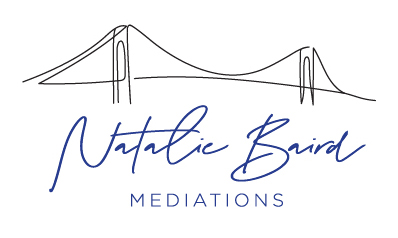At this time Natalie is offering mediation services only

With the current state of the national pandemic due to COVID-19, you might be concerned about having to meet in person to attend a divorce mediation. Natalie Baird mediation & collaborative divorce is one of the few divorce mediators in the entire Tampa Bay area that conducts virtual meditations. Rather than meet in person, you and your spouse can meet online with the divorce mediator via private video chat. It’s simple and secure and you can attend mediation in the privacy of your own home. Natalie Baird is a Board Certified attorney and a Supreme Court Certified Family Law Mediator. She has litigated hundreds of family matter cases, and Natalie is prepared to help you mediate your divorce.
If you live in Clearwater, St. Petersburg, or Tampa, and you’re looking for a divorce mediator, you might have a few questions about the whole process.
Some of the more common questions are as follows:
What will happen during a divorce mediation?
Divorces can go smoothly and sometimes they are contentious. Regardless of the situation, Natalie Baird will calmly lead the conversation between you and your spouse. She will impartially guide the dialog so that each side can voice their concerns. A divorce mediator’s job is not to make decisions but rather to foster a healthy environment for conversation and legal decision-making.
What will we talk about during a divorce mediation?
If you have children, family planning and co-parenting decisions will need to be made. Child support, division of assets, and debt are all discussed during the mediation process.
What do I need to do so I’m prepared for divorce mediation?
Of course, being prepared for a virtual divorce mediation is important. Natalie Baird Mediation and collaborative divorce will provide a list of documentation that is needed. Common items you would need to collect are W-2s, real estate documentation in the Tampa or Clearwater area, investment statements, and bank records.
Divorce can be difficult. It can be stressful and it can be overwhelming at times. That is why a neutral mediator like Natalie Baird can help to diffuse the situation and help both parties come to an agreement that is amicable for all. If you are interested in a virtual mediation please fill out the form to the left or you can give us a call at 813-440-9975. We look forward to helping you with your divorce.
Who Controls the Process
Collaborative:
You and your spouse control the process and make final decision
Litigation:
Judge controls process and makes final decisions
Degree of Adversity
Collaborative:
You and your spouse pledge mutual respect and openness.
Litigation:
Court process is based on an adversarial system
Cost
Collaborative:
Costs are manageable, usually less expensive than litigation; team model is financially efficient in use of expert
Litigation:
Costs are unpredictable and can escalate rapidly including frequency of post-judgement litigation
Timetable
Collaborative:
You and your spouse create the timetable
Litigation:
Judge sets the timetable: often delays given crowded court calendar
Use of Outside Experts
Collaborative:
Jointly retained specialists provide information and guidance helping you and your spouse develop informed, mutually beneficial solution
Litigation:
Separate experts are hired to support the litigants’ positions, often at a great expense to each
Involvement of Lawyers
Collaborative:
Your lawyers work toward a mutually created settlement
Litigation:
Lawyers fight to win, but someone will lose
Privacy
Collaborative:
The process and discussion or negotiation details are kept private
Litigation:
Dispute becomes a matter of public record and sometimes media attention
Facilitation of Communication
Collaborative:
Team of collaborative practice specialists educate and assist you and your spouse on how to effectively communicate with each other
Litigation:
No process designed to facilitate communication
Voluntary vs. Mandatory
Collaborative:
Voluntary
Litigation:
Mandatory if no agreement
Lines of Communication
Collaborative:
You and your spouse communicate directly with the assistance of members of your team
Litigation:
You and your spouse negotiate through your lawyers
Court involvement
Collaborative:
Outside court
Litigation:
Court-based
